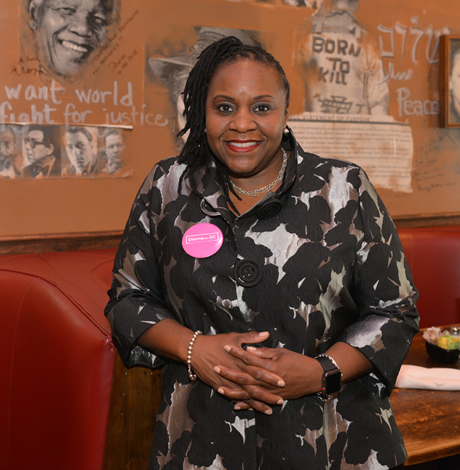Local
Comings & Goings
Bussey-Reeder to lead Far Southeast Family Strengthening Collaborative
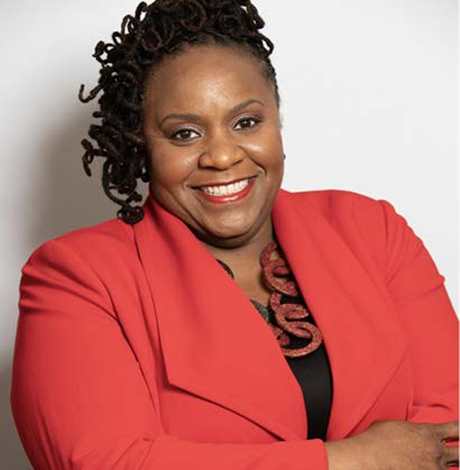
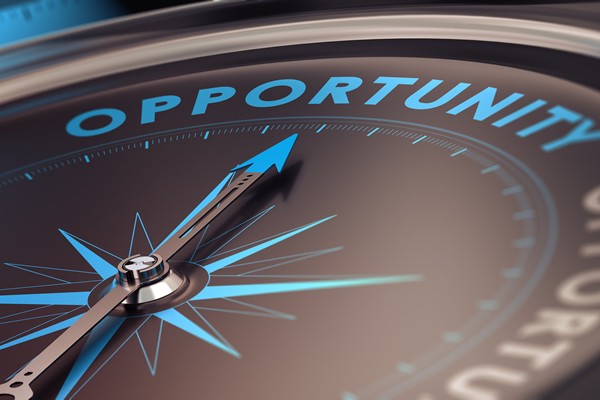
The Comings & Goings column is about sharing the professional successes of our community. We want to recognize those landing new jobs, new clients for their business, joining boards of organizations and other achievements. Please share your successes with us at: [email protected].
The Comings & Goings column also invites LGBTQ+ college students to share their successes with us. If you have been elected to a student government position, landed an exciting internship, or are graduating and beginning your career with a great job, let us know so we can share your success.
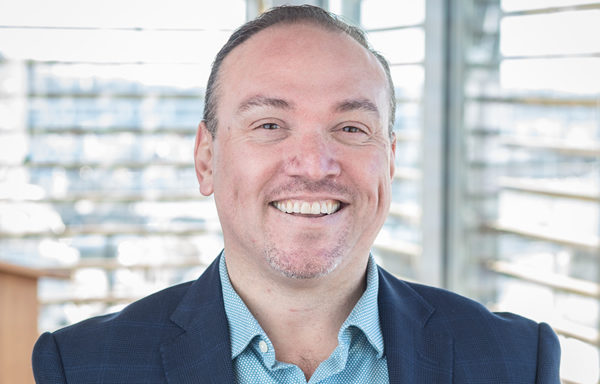
Congratulations to Orlando Gonzales who has been appointed the new executive director of SAVE, the organization that has served the South Florida LGBTQ community for more than 25 years.
Board of directors chair Elizabeth Regalado said, “We feel very fortunate and proud to have Orlando back at SAVE as the organization’s executive director. His background, vision, unique experience, and passion for advocacy work are emblematic of the work SAVE has led for the South Florida LGBTQ+ community for more than 25 years.”
Upon his appointment Gonzales said, “I’m thrilled to be returning to Miami, because I care deeply about the mission of the organization and the LBGTQ+ community. I’m looking forward to working collaboratively with allied organizations and individuals at local, state, and national level to advance the cause of equality.”
Prior to joining SAVE, Gonzales worked as a real estate agent with Compass, D.C. and before that he was the Operations Manager on the communications team and the chief of staff for engagement at the Patient-Centered Outcomes Research Institute (PCORI).
He has a diverse professional experience in publishing, philanthropy, and public health industries and his success has been attributed to his ability to relate to people at all levels. Public service is an important part of his life and he has focused his involvement with organizations that promote human rights and the educational advancement of people of color and the LGBT community. He has been on the board of trustees of the Point Foundation, and an active alumnus of Georgetown University and of the National Urban Fellows program.
Gonzales earned his bachelor’s in sociology from Georgetown University in Washington, D.C., and a master’s of public administration with honors from the City University of New York’s Austin W. Marxe School of Public and International Affairs at The Bernard Baruch College in New York City. As a National Urban Fellow, he successfully completed his fellowship at the Aetna Foundation in Hartford, Conn.
Congratulations also to Patrick Campbell who has a new position as senior strategic technical marketing engineer at Nutanix. According to its website, “They make infrastructure invisible by hyper converging legacy systems into a simple and delightful platform that scales to private and public cloud environments without a lot of unnecessary overhead. Nutanix uses inexpensive commodity servers under the covers and delivers a cloud-like self-service user experience.”
“After spending almost a decade in K-12 education as a high school math teacher, I transitioned to IT as a technical trainer, writer, and then technical marketing engineer,” Campbell said. “This position at Nutanix culminates the wide range of skills and experiences I’ve had into a very focused role in strategic technical marketing. I can’t wait to get to know their customers and help them get to where they need to go in their digital transformation journeys.”
Prior to joining Nutanix he was with CloudBolt Software as senior technical marketing manager and before that with BMC Software as senior technical marketing consultant. Before that for 12 years he was a teacher. He worked in the Baltimore area coordinating the delivery of academic instruction for mathematics and science K-12 teachers who came to the U.S. to learn about inquiry-based and constructivist teaching paradigms. Prior to that, he worked at Drew School High School in the San Francisco Bay Area as a mathematics teacher of algebra through pre-calculus 9-12. He also directed a summer school International Program and was a volleyball and basketball coach.
Campbell earned his bachelor’s in Industrial Engineering from Penn State University, and his master’s degree in Human Resource Management and Behavioral Science from The Johns Hopkins University – Carey Business School.
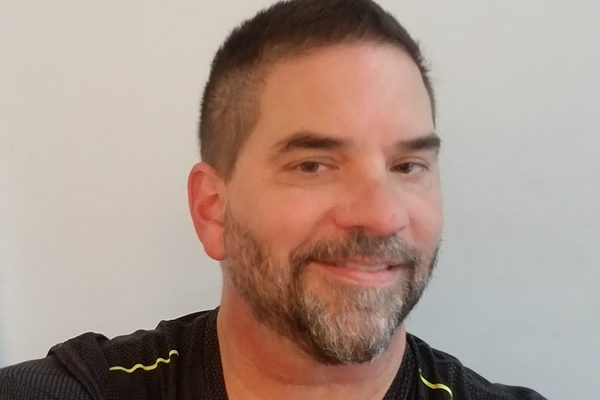
Congratulations also to Dionne Bussey-Reeder who began her new position as executive director of the Far Southeast Family Strengthening Collaborative on Oct. 1. The Far Southeast Family Strengthening Collaborative, Inc. (FSFSC) was formally established in April 1996 through a Neighborhood Collaborative Capacity Grant made possible through the federal Family Preservation and Support Act. FSFSC is organized as a partnership of residents, agencies, government bodies, and institutions located in and/or doing business in the Southeast community. They are a member of the citywide Healthy Families Thriving Communities Collaborative, a network of all the collaboratives, and a member in good standing of the joint policy body, the Collaborative partnership.
Bussey-Reeder is a businesswoman, community organizer and non-profit executive. Upon accepting the position she said, “I am blessed to have an opportunity to lead this great organization that began 23 years ago with the idea that giving neighbors a small hand up could change their lives forever. That spirit is evident each day as the collaborative’s employees work tirelessly to provide housing, direct services and support to the people and community organizations in Ward 8. As I follow in the footsteps of my good friend Perry Moon, we thank him for doing a great job. Together with the Board of Directors and our awesome staff, we will build on our past successes and never lose sight of the fact that our work and our mission makes a profound impact on the daily lives of residents in Ward 8.”
Dionne owned a cafe in Anacostia, Cheers at the Big Chair. She is a native Washingtonian who grew up in Ward 1. She has been active in D.C. politics including having been a Neighborhood Services Coordinator in the Williams’ administration. Last year she ran against Elissa Silverman for an at-large seat on the City Council. She and her wife, whom she met more than 20 years ago, now have a five-year old granddaughter. Bussey-Reeder is a graduate of West Virginia State University.
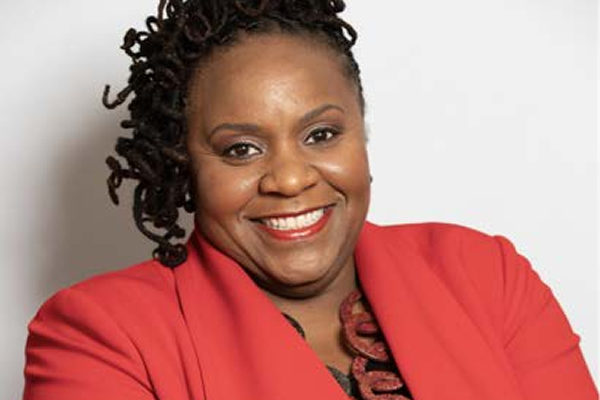
Rehoboth Beach
Rehoboth Pride festival to take place July 19
LGBTQ-friendly resort town welcomes third year of celebrations
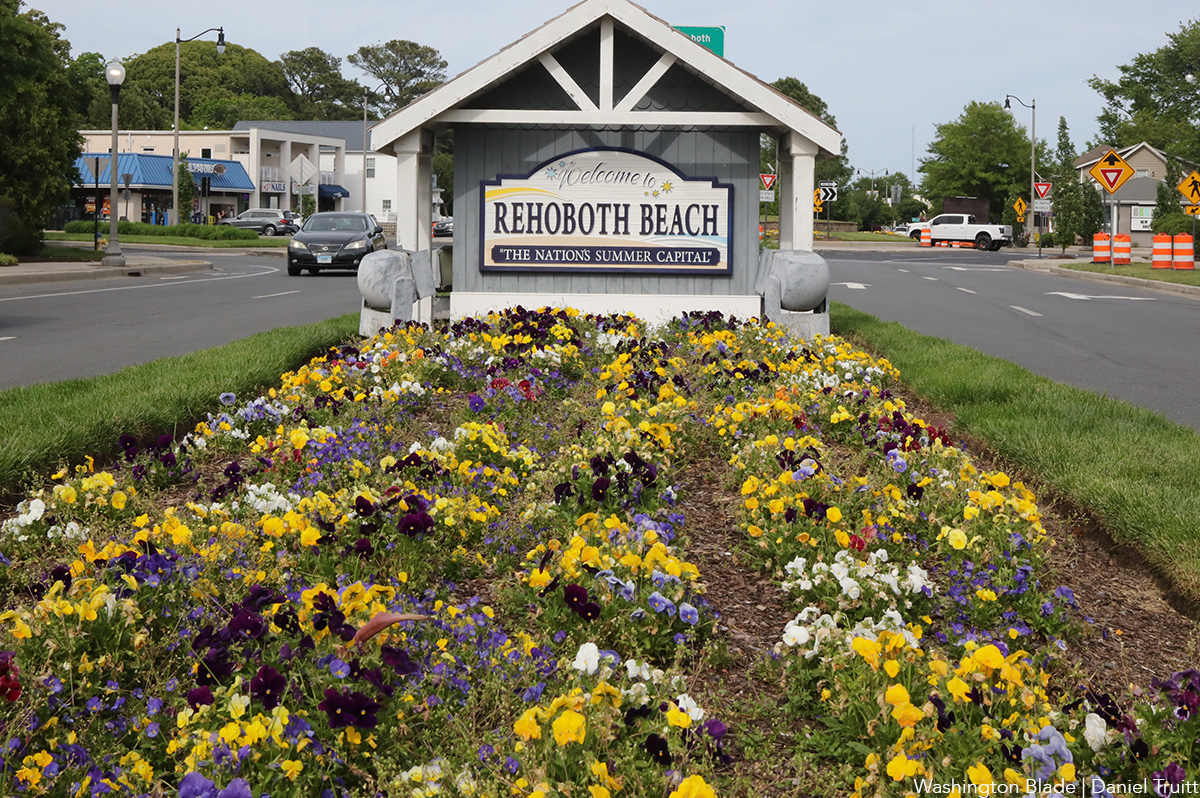
Rehoboth Beach Pride is back for a day of summer celebration next Saturday.
The Delaware beach town will host its Pride festival at the Rehoboth Beach Convention Center on July 19 from 9 a.m.-2 p.m., followed by an after-party at Freddie’s Beach Bar and a ticketed event in the evening with a film screening, comedian, and musician.
“It will be a day of community engagement, fun, celebration and learning, all sorts of things rolled into one,” David Mariner, executive director of Sussex Pride, told the Washington Blade. “I think it’s a great opportunity for us to be together, to support each other.”
Pride is organized by Sussex Pride and Gay Women of Rehoboth. The festival will include a free, family-friendly event with vendors offering information and resources, health screenings, and other activities.
Drag queen Roxy Overbrooke will host the festival, with performances throughout the day by Ivy Blu Austin, Goldstar, the cast of Clear Space Theatre, JC Pizzaz, and Kadet Kelly.
Mariner said Rehoboth Pride has not seen a decrease in corporate support this year, as some Pride celebrations have. Last year, the vendor spots were capped at 50 but increased to 60 this year.
“The main thing that’s different this year is what’s happening in the world and what’s happening in the country so it changes the tone,” Mariner said. “I go into this with strength and determination and an awareness and appreciation for the rights that we have here in Delaware. I go into this … knowing there are people in our community feeling under attack. There are a lot of things happening at the national level that impact us from healthcare to education that affect our lives in various ways.”
Funds raised from a raffle will be used to support unhoused LGBTQ youth in Delaware. Last year, the raffle raised $1,000, which was donated to the Safeguards Housing Committee, a program of PFLAG Wilmington.
In response to LGBTQ youth “increasingly targeted by harmful rhetoric and policies,” the festival will hold various workshops with topics such as supporting the LGBTQ Latinx community, suicide prevention, and an ACLU activist training.
Mariner referenced a Dan Savage quote from the AIDS epidemic that he loves. He said it reflects Pride festivals and the celebration of pride in the LGBTQ community.
“During the darkest days of the AIDS crisis, we buried our friends in the morning, we protested in the afternoon, and we danced all night. The dance kept us in the fight because it was the dance we were fighting for,” the quote reads.
Mariner said having an event like this that combines education, advocacy, and celebration is reflective of “who we are as queer people.” He said it’s important to learn and recommit to the work that needs to be done and that he is looking forward to every piece of the day.
“I would just like to see everyone leave the convention center feeling loved and connected and supported and with a renewed sense of strength and determination to face whatever challenges may come,” Mariner said.
District of Columbia
Gay ANC member announces candidacy for Ward 1 D.C. Council seat
Community leader Brian Footer seeking seat held by Brianne Nadeau

Gay Advisory Neighborhood Commissioner Brian Footer, a community activist who has been involved for many years in local and national government affairs, has announced his candidacy for the Ward 1 D.C. Council seat up for election in 2026.
Footer, a Democrat, will be running in the city’s June 2, 2026, Democratic primary for the Ward 1 Council seat, but it is uncertain whether he will be running against incumbent Ward 1 Council member Brianne Nadeau (D). Nadeau has not yet announced if she plans to run for re-election for a fourth term following her 12 years on the Council.
Nadeau has been a longtime vocal supporter of the LGBTQ community.
If Footer were to win the primary and the November 2026 general election, he would become the Council’s second openly gay member. Ward 5 Council member Zachary Parker (D) is currently the 13-member Council’s only gay member.
Footer is a three-term ANC commissioner who currently serves as Chair of ANC 1E, which represents the city’s Adams Morgan neighborhood.
“Brian has worked at every level of government — federal, state, and local — building a career rooted in public service, aging policy, and inclusive urban planning,” a statement on his campaign website says.
“I’m running for Council because too many people in Ward 1 are doing everything right and still feel ignored by the city they call home,” Footer states on his website.
“I’m running because we can do better,” his statement continues. “That means making housing more affordable, addressing homelessness with real solutions, and keeping our neighborhoods safe with smart, community focused strategies.”
When contacted by the Washington Blade for comment, Nadeau said she was not ready at this time to discuss her plans about running again or about Footer’s candidacy.
“The primary is a ways away, and I’m very focused right now on the budget and the stadium deal and all the work that we’re doing at the Council,” she told the Blade. “So, I really haven’t had time to turn to my plans. So, as a result, I’m also not going to be commenting on anybody else who is determined that they’re running at this time.”
She first won election to the Council in 2014 after she defeated four-term gay Ward 1 Council member Jim Graham in the Democratic primary after Graham became embroiled in an ethics controversy.
In the 2022 Democratic primary Nadeau defeated gay challenger Salah Czapary in a three-candidate race, by a margin of 48.5% of the vote compared to Czapary’s 30.9%.
With the third candidate, Sabel Harris, receiving 20.4%, the outcome showed that the two challengers had a combined total vote count higher than Nadeau.
Further details of Footer’s candidacy can be accessed from his campaign website, brianfooterdc.com.
District of Columbia
Gay GOP group hosts Ernst, 3 House members — all of whom oppose Equality Act
Log Cabin, congressional guest speakers mum on June 25 event

U.S. Sen. Joni Ernst (R-Iowa) and three women Republican members of the U.S. House appeared as guest speakers at the June 25 meeting of Log Cabin Republicans of D.C., the local chapter of the national LGBTQ Republican group with that same name.
The U.S. House members who joined Ernst as guest speakers at the Log Cabin meeting were Celeste Maloy (R-Utah), Kat Cammack (R-Fla.), and Julia Letlow (R-La.).
Neither D.C. Log Cabin Republicans President Andrew Minik nor spokespersons for Ernst or the three congresswomen immediately responded to a request by the Washington Blade for comment on the GOP lawmakers’ appearance at an LGBTQ GOP group’s meeting.
“Please join us for an inspiring evening as we celebrate and recognize the bold leadership and accomplishments of Republican women in Congress,” a D.C Log Cabin announcement sent to its members states.
“This month’s meeting will highlight the efforts of the Republican Women’s Caucus and explore key issues such as the Protection of Women and Girls In Sports Act and the broader fight to preserve women’s spaces in society,” the message says.
It was referring to legislation pending in Congress calling for banning transgender women from participating in women’s sports events.
According to media reports, Ernst and the three congresswomen have expressed opposition to the Equality Act, the longstanding bill pending in Congress calling for prohibiting discrimination based on sexual orientation and gender identity in the areas of employment, housing, and public accommodations.
The Log Cabin announcement says the meeting was scheduled to take place at the Royal Sands Social Club, which is a restaurant and bar at 26 N St., S.E. in the city’s Navy Yard area.
D.C. Log Cabin member Stuart West, who attended the meeting, confirmed that Ernst and the three congresswomen showed up and spoke at the event.
“It was a good turnout,” he said. “I would definitely say probably 30 or 40 people attended.” West added, “Four women came to talk to a group of mostly gay men. That’s something you don’t see very often.”
-

 Federal Government2 days ago
Federal Government2 days agoTreasury Department has a gay secretary but LGBTQ staff are under siege
-

 Virginia3 days ago
Virginia3 days agoDefying trends, new LGBTQ center opens in rural Winchester, Va.
-

 District of Columbia2 days ago
District of Columbia2 days agoGay GOP group hosts Ernst, 3 House members — all of whom oppose Equality Act
-

 District of Columbia2 days ago
District of Columbia2 days agoD.C. police seek public’s help in July 5 murder of trans woman



